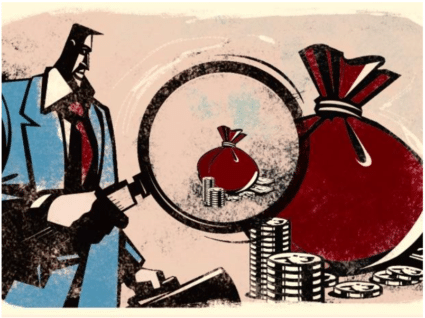Whether by choice or by necessity, people are shifting away from fiat currencies, and in some cases moving back to a Gold Standard.
November 1, 2021
By: Bobby Casey, Managing Director GWP
Economics is simply the observation of cause and effect in the market. You pull one lever, people do one thing; pull a different lever, people do another.
The problem with politicians pulling these levers is, they are economically illiterate. Their predictions for what cause will lead to what effect is not just wrong, but disastrous. Their motives to pull certain levers isn’t to have a particular economic outcome, but rather to incite certain behaviors.
Central planners think they can punish wealth into existence or punish it into staying. That has never worked. Wealth is a reward and it rewards itself in economically friendly environments. Where the market is freer to govern itself, prosperity isn’t far behind.
Whenever governments get too restrictive, people tend to find a free market alternative, and it’s incredible how they go about it.
A while back we posted a blog about the Shadow Economy, or System D:
System D is the underground or gray economy where approximately 20% of the world’s population works and is about 20% of the world’s total economic activity.
The gray markets are like any other business, only without the hassle of contorting themselves for the government’s blessing. Part of what makes a gray market work is that they don’t use traditional channels to conduct business.
They might barter. They will accept other forms of currency. They do what they need to do, and without some sort of banking or credit system, it’s nearly impossible to track them down.
No doubt, many people around the world are operating in gray markets out of necessity rather than choice, but that necessity brought on a gray market solution is precisely what I’m talking about here.
Earlier this year, news broke of the millennial president of El Salvador, Nayib Bukele, signed into law Bitcoin as legal tender. The alternative to relying on the US dollar or traditional banking is expected to help Salvadorans economically as a hedge against the dollar but also in avoiding the friction with wire transfers.
Now look at Venezuela. It’s government decided that rather than printing ALL the zeros it took to make the $0.25 equivalent of 1,000,000 Bolivars, it would just reduce it back to 1 Bolivar notes with the understanding that it was actually one million.
So 100 million Bolivars is worth $25, but they repurposed the 100 Bolivar note, to represent 100 million.
They are doing this because just in 2021 alone, the Bolivar has lost another 73% in value, while their inflation rate is approaching 5,500%.
That hardly sounds real right?
Obviously, with the Bolivar becoming worthless, Venezuelans have turned to basically anything else that has value:
US dollars are the exchange medium of choice in Caracas and other large cities, while the Colombian peso dominates along the Colombian border, particularly in the regional city of San Cristobal. The Brazilian real is current along the southern border with Brazil and the euro and cryptocurrencies have also found niche uses.
It makes sense that Venezuelans would be open to whatever else they can get their hands on other than a Bolivar, and they would naturally accept the currency most readily available in that area.
In one particular southeastern pocket, they Venezuelans are looking to literal gold flakes. This region is rich in precious metal ores. Much like Eureka, California, prospectors once would go out there to mine for gold.
Those mines are now mostly controlled by the government, the military, or even violent gangs:
Despite the violence and lawlessness, jobless Venezuelans from far and wide are flooding into the area to work in thriving illegal mines in exchange for payment in gold nuggets. As a result, gold flakes, which are peeled off raw nuggets with hand tools, have become the currency of choice in the region with prices for commodities and services quoted in grams of gold.
Locals are now wrapping their gold flakes in the worthless Bolivars, and buying what they need. Some shops will pay them in dollars for the gold to cash out. Some shops don’t even have scales and just accept an amount by eyeballing it.
The apparent lesson is: if you can debase your currency enough, you actually can wind up with: a Gold Standard. The irony is not lost on me whatsoever.
This isn’t dissimilar to how the “Blue Dollar” works in Argentina, how the Lira still functions in Italy, and how Crypto is used in many unbanked areas around the world. It’s another way to give and receive payment that is portable enough, and carries enough value to close the deal.
So long as governments push policies that make their respective economies hostile toward prosperity and reward, there will be a growing shadow economy. When you make the rules impossible to follow, people get frustrated and forgo the rules for their own survival.
All the different factors feeding into the supply chain issues is inflation. People are indeed buying more. But they are buying more affordable items from less expensive places like China. Demand isn’t high because the economy is booming. Demand is high and the dollar goes much further in other countries than in the US.
As defeating as much of these government created conditions can seem, what is hopeful is how people solve for it. Life goes on with or without the government’s blessing.
Click here to schedule a consultation on how you can protect your assets from overreaching governments, or here to become a member of our Insider program where you are eligible for free consultations, deep discounts on corporate and trust services, plus a wealth of information on internationalizing your business, wealth and life.


